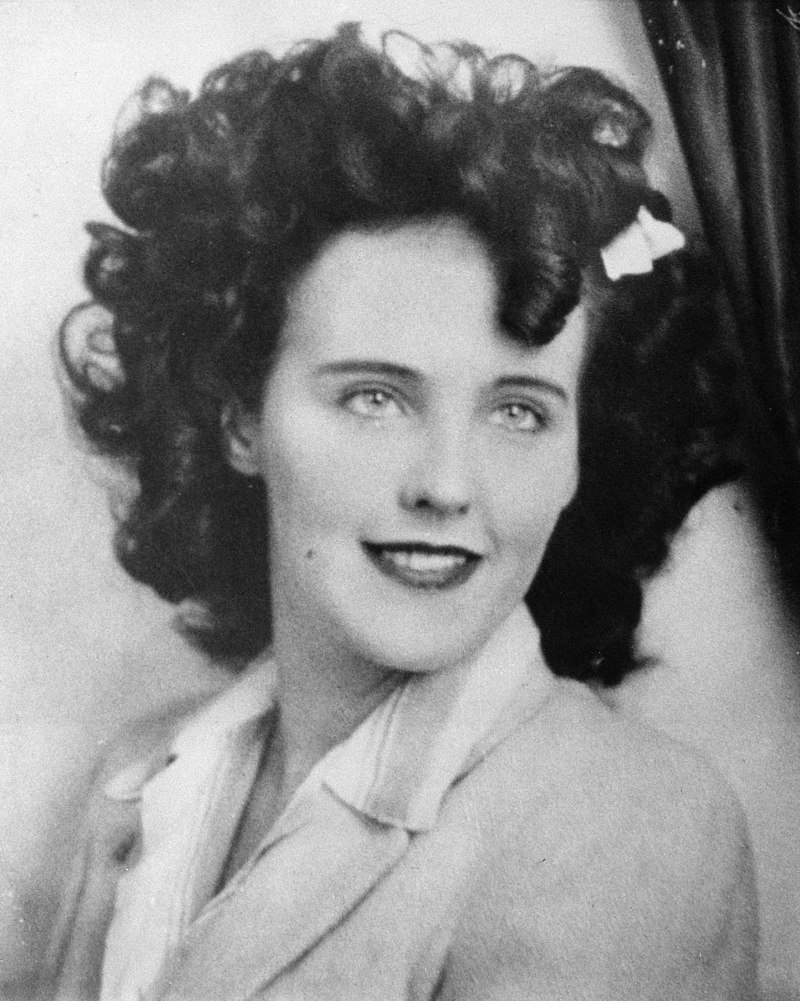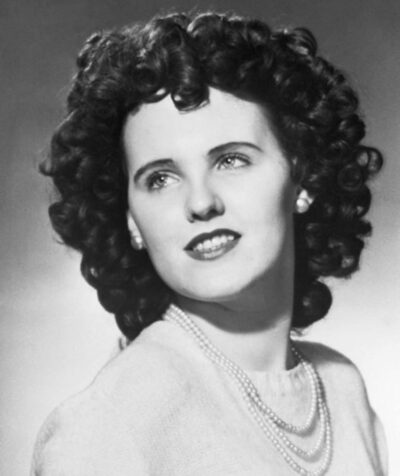Short bio of Elizabeth Short

On the evening of January 9, 1947, Elizabeth Short exited the Olive Street exit of the Millennium Biltmore Hotel in downtown Los Angeles and disappeared into a cold, unforgiving night. Six days later, her body was found mutilated in a vacant lot in Leimert Park, a community in South L.A.
After exiting the lobby of the Biltmore Hotel, there has never been a confirmed sighting of Elizabeth. We do not know where she went, nor do we know with whom. The six days between her last sighting at the Biltmore and the discovery of the body is commonly known as the missing week. The much-debated missing week is a topic we shall discuss later.
The murder of Elizabeth Short, often referred to as the Black Dahlia, remains an enduring mystery that has haunted law enforcement, armchair detectives, and our collective imaginations for over 75 years.
According to the testimony of the bellhop, Harold Studholme, Elizabeth was in the lobby until about 10:00 pm, when she left through the Olive Street door, heading towards 6th Street. He said that it appeared that someone might have waved or motioned to her, and she then left the Biltmore. Did she head towards 6th Street, where someone in a car awaited her, or did she have other plans?
Elizabeth Short was born July 29, 1924, in the Hyde Park area of Boston, Massachusets, to Cleo and Phoebe Short—the third of five daughters: Virginia, Dorthea, Elizabeth, Elenora, and Murel. The family resided in New Hampshire for a period, with Phoebe eventually suggesting that they relocate to Medford, Massachusets. At the time, Cleo had a thriving business in New Hampshire, but eventually, Phoebe prevailed, and they relocated to Medford.
In Medford, Cleo designed miniature golf courses for a living while Phoebe kept the books and took care of the children. Life was comfortable for the Short family until the stock market collapse of 1929, and the United States entered the Great Depression. With much of the nation merely trying to get by, there was no demand for miniature golf courses, and the revenue ran dry.
And things would soon get worse; in 1930, Cleo Short went missing. Eventually, the police located his car, abandoned on the Charlestown Bridge in Boston, Massachusetts. The assumption was that he had committed suicide. The news must have been devastating. In Cleo’s absence and in a time of profound economic instability, Phobe became a single mother with the difficult job of supporting five daughters.
More coming soon…
THIS BIOGRAPHY IS IN PROGRESS
Please bear with us on this

